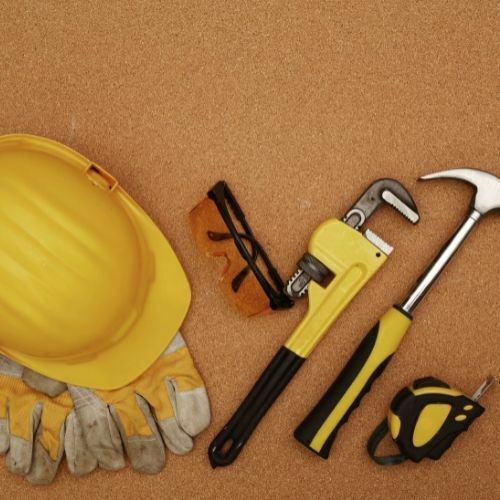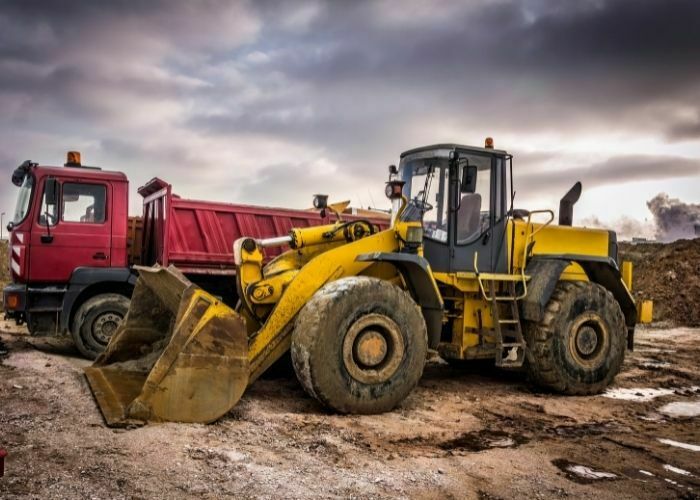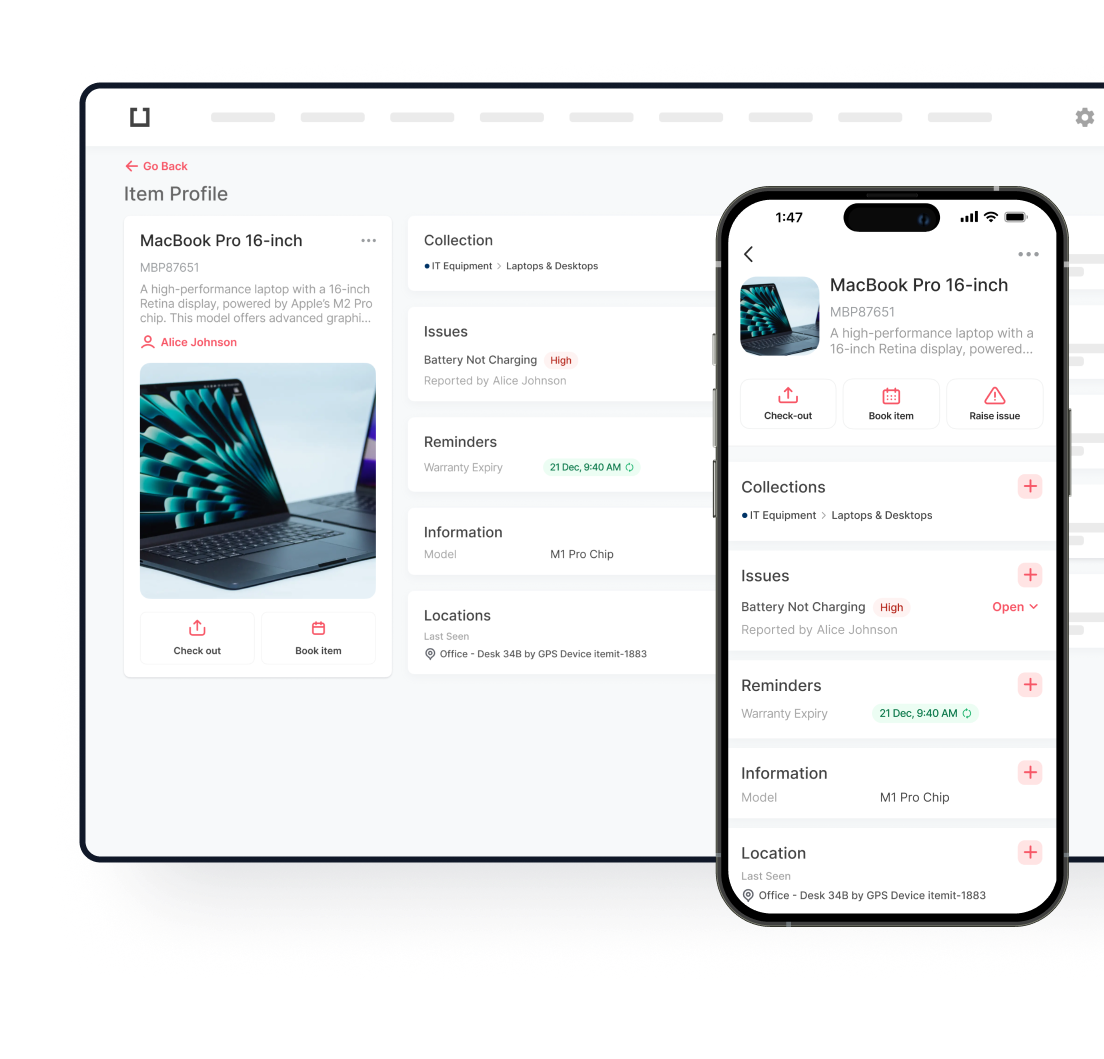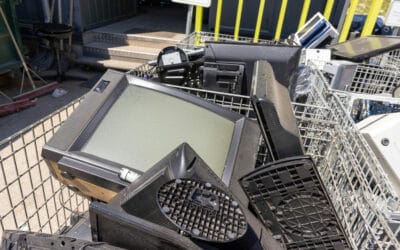
A lot of organisations don’t have a problem tracking a high value asset. If you spend 1000s on a state-of-the-art, game changing bit of tech, you are likely to know where it is and who is using it! In this case, the challenge is often making sure the asset is properly maintained and covered by insurance in case of a breakdown.
Of course, this gets more complicated if you have a lot of these large investment items or they are mobile. Then it is easy to lose track over time and unnecessary losses start to build up. That’s when an equipment management software starts to pay for itself.
It is much more difficult to keep track of lower value items. If you are, for example, a construction company, knowing where every hard hat, hammer and drill is, who has it and when it will next be available to book onto a new site, is a mammoth task. The same can be said for all sorts of industries.
With a high quality equipment management software, you can track almost any asset, great and small.
What is Equipment Management Software?
Equipment management software is a means of seeing where all tools and other equipment are, who has them, where they are going etc. Software like this relies on trackers and tags to keep an up-to-date database of a company’s asset infrastructure. This control and insight helps maintain equipment and protect against losses. But what sort of thing can you track?
What Types of Equipment Can You Track?
Anything’s possible! However, there are a few assets that are simply not worth tracking. For example, if the value of the item is less than the cost of tracking. Having said that, asset tracking can be surprisingly affordable, making tracking small items more worthwhile than you might think.
Let’s take a look at a few types of equipment that can be tracked using asset management software.
Tool Tracking
This sort of tracking is most relevant to construction. However, any business that carries out repairs or requires specialised equipment can benefit from tool tracking.
For example, facility management and utility companies. If you have relied on spreadsheets for asset tracking up until now, then the idea of keeping a record of where all tools are and what individual or team has them, might seem like a false economy. The sheer administrative task of keeping up with this would far outweigh the benefits. However, that objection is a thing of the past!
How Does Tool Tracking Work?
Tool tracking generally relies on RFID or QR tags. This is a low-cost, effective way of being able to see the last known location of your assets. A tag is attached to the item and this can be scanned using a hand-held scanner or smart phone.
If you are using RFID tags, it is possible to hide the tag so that they cannot be tampered with or damaged.
Advanced equipment management softwares makes it possible to quickly add new tools to your asset register. This goes a long way to reducing admin and data entry time, meaning that control of your assets does not come at the cost of admin headaches!
What Sort of Tools Can You Track?
Anything! Ok, maybe not anything, but nearly anything. QR and RFID tags are really versatile. Whatever tools your business relies on to get the job done, you can pretty much guarantee there is a tracking solution to suit.
IT Equipment Tracking
Our reliance on IT has gone way beyond desktop PCs. The IoT has become a core component of many organisations’ success. Allowing for greater automation, better service and deeper insights.
With this comes a much more complex and much more valuable network of assets. Tablets, smart phones, hand scanners and the like, all fall under the banner of IT equipment tracking and losing track of these items can have a seriously negative impact on both costs on operational functionality.
This grows more complex if you have IT equipment in a lot of different locations. But, even in this case, equipment management software can not only give you control, it can make managing your assets painless.
How Does IT Equipment Tracking Work?
That depends. If you’re talking about stationary assets like PCs, then you might not need to rely on trackers at all. For mobile IT equipment GPS tracking plays a large role. A lot of devices (particularly SmartPhones and Tablets) have GPS trackers in-built, which makes it possible to access up to date location information via a centralised software. However, for more in-depth information it may make sense to combine this tech with QR or RFID tracking.
With equipment tracking software, you can do more than find out where your IT equipment is and where it’s been. You can add useful reminders which will ensure your equipment remains compliant, reliable and up to code! For example, all companies need to carry out regular PAT testing. By keeping up-to-date records in your asset register, you can set reminders that will take the leg work out of an asset maintenance schedule.
We all know tech can go wrong. One way that a fit-for-purpose software solution can work for you is by allowing users to update you in real time about breakdowns or errors. That way, a small issue need not snowball into a costly one!
What Sort of IT Equipment Can You Track?
This list is a long one! But to give you a flavour of the scope of IT equipment tracking, check out the list below:
- Desktop PCs
- Laptops
- Tablets
- Routers
- Servers
- Modems
- Headsets
- VoIP Phones
- Network Switches
- Printers
- Monitors
The list goes on!
Plant & Machinery Tracking
Plant & machinery would include assets like specialist vehicles and manufacturing machinery. A lot of the time, plant and machinery will only move around a single site, for example, from warehouse A to warehouse B. Or never move at all, for example on overhead crane. Of course, particularly in the construction industry, plant assets could potentially go to any site within a company’s area of operation.
Whatever the case, the right equipment management software provider will be able to provide you with a tool to track your plant & machinery equipment.

How Does Plant & Machinery Equipment Tracking Work?
If you have read this far, you’ve probably picked up on a theme. Namely, that there is not one hard and fast solution to fit each equipment type. However, when it comes to plant & machinery tracking, QR tags are generally not the best route to go down, if for no other reason than the items are often too large to be looking for a QR code to scan!
Fixed RFID tagging can work great, particularly in a warehouse environment. This works by installing fixed scanners at strategic points. In this way you can track where all machinery is at any given point.
By combining this approach with other equipment tracking methods, it is possible to see in real time the state of all plant and machinery assets. Including vital information like the state of repair of assets and their maintenance schedule.
What Sort of Plant & Machinery Equipment Can You Track?
Again, the sky’s the limit here. The challenge is really picking the right software and method of tracking. Ma. Having said that, the list below gives an idea of the kind of assets you should be able to track using equipment management software:
- Excavators
- Forklifts
- Dumpers
- Cranes
- Loaders
- Boring Machines
- Laser Cutters
Basically, any specialist vehicle or machine required to run your operation, produce your products or carry out your services!
Tool & Equipment Tracking: What Are The Benefits?
We’ve seen how tool and equipment tracking works, and we have got a sense of what you can track. But why should you bother? Well…
Never Lose Tools
This is a big one. Losing the odd screwdriver might not be too scary, but a lack of vigilance in this area can mean mounting costs that are only going to get worse over time. By tracking tools, you make your staff accountable, which has a huge impact on how often assets go missing. Outright theft may be a rarity (let’s hope so!), but people are much less likely to misplace a tool if they know that it can be traced back to them.
And if something does go missing, equipment management software gives you all the information you need to investigate effectively.
This doesn’t necessarily mean holding staff accountable. It can be as straightforward as having enough information to know where to look.
Well-Maintained Equipment
Having well maintained assets not only has a positive impact on your bottom line, it also has health and safety implications. Having a workable, effective plan for keeping your equipment in good condition keeps your staff safe and your insurance valid!
Through using a modern equipment management system, you can implement easy to follow maintenance schedules that will ensure the integrity of your assets. You can make this visible to anyone in your organisation, spreading the responsibility for looking after your equipment.
Understanding the condition of all tools and equipment does more than make sure that you have everything you need to do what you do to the standard that your customers have come to expect. It also means that you can get ahead of breakdowns before they happen. Meaning that you minimize spend and avoid sudden, unexpected repair costs.
Not only this, but you can drastically reduce the impact of depreciation.

Collaborate Effectively
Share the burden of tool and equipment management by allowing staff across your business to view and update your equipment. Most high-quality equipment software solutions will let you set who can make changes to your equipment data. However, it makes sense to let the people using the tools and equipment update the system if a repair is required. This means you can respond quickly, and effectively.
Another way that an equipment management solution can help you to save time and effort through collaboration, is by sharing equipment manuals and instructions. Contemporary systems make it easy to attach multimedia documentation to individual items. This empowers employees to solve problems themselves rather than delaying and escalating tasks.
Choose itemit As Your All-In-One Equipment Tracking Software
itemit recognise that your business is unique. No two solutions are the same. So, you need equipment management software that fits in with the way you work.
Consultation is the first step towards getting a solution that works optimally. That means looking at your entire asset ecosystem, and coming up with the most cost-effective solution that can scale with you.
Getting our clients a demonstrable return on their investment is at the heart of all of our solutions. An equipment tracking system that only provides the bare minimum functionality will seem cheap, but is unlikely to give you the control and insight to get the full cost savings available. Equally, it is possible to over do it, tracking too many assets too often. We work with you to find the right balance between functionality and affordability.
Book a demo today to see all itemit’s features in action. To find out more details, you can always contact our team at team@itemit.com.

Try itemit
Choose a better way to track
your assets.
Start your free 14-day trial now!

Keep Learning
itemit Blog
Tips, guides, industry best practices, and news.
What Are The Four Phases Of The Equipment Life Cycle?
There are four phases of an equipment life cycle, but it’s not clear what they are or why equipment tracking can improve the life cycle. Read this article to find out!
Implementing An Effective Equipment Replacement Plan
Need to replace equipment after using pre-emptive maintenance? implementing an equipment replacement plan helps. Read this article to find out how to make a plan!
Make The Switch To Equipment Tracking Software
Know where your assets are all of the time by using equipment tracking software. Read this article now to discover additional benefits!


